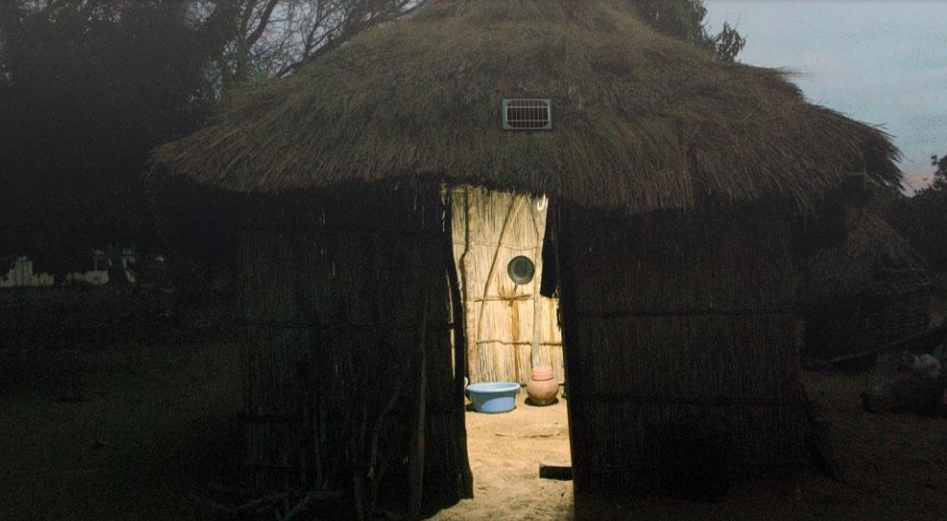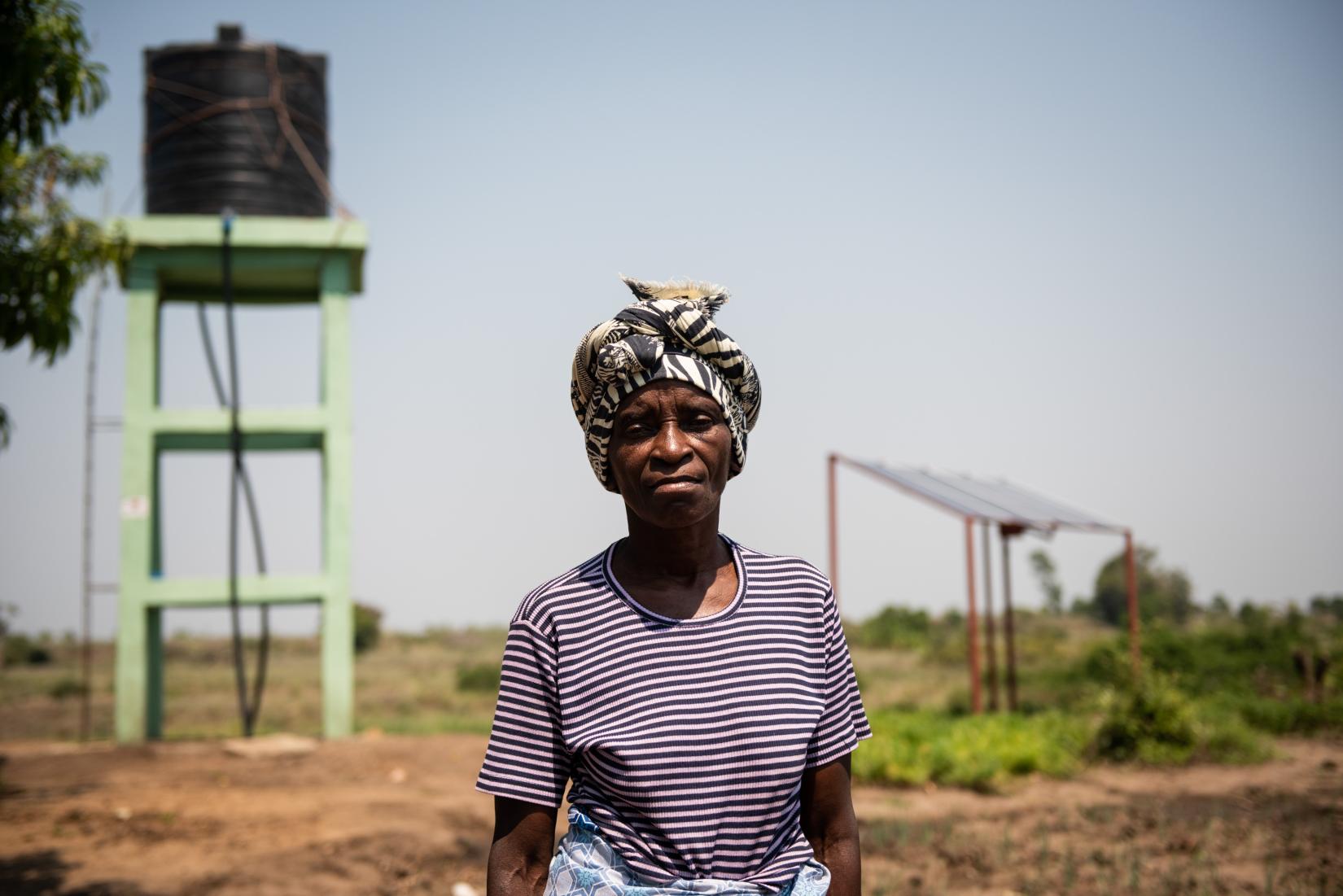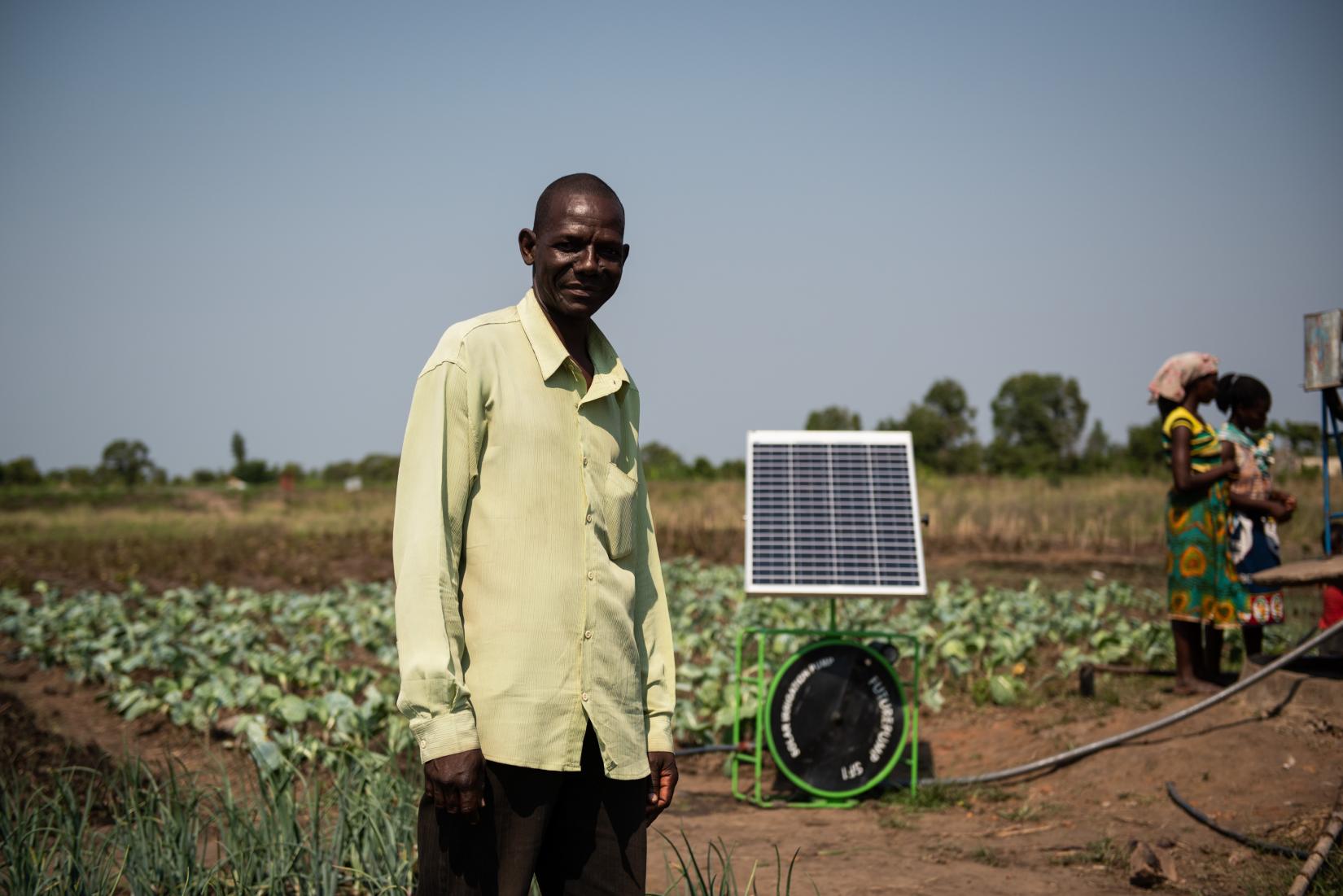
Whereas Mozambique made remarkable progress in 2014 with a 40% rate of electricity coverage, the extension of the national grid has proven to be technically difficult, very costly and sometimes an inefficient solution due to the remoteness and sparse population density. In 2015, the population reached 27,977,863 inhabitants from which 68% live in rural areas.
Agriculture is one of the most important sectors of the Mozambican economy accounting for 31.8% of the Gross Domestic Product (GDP) and providing a livelihood to almost 81% of the labor force. The Agricultural sector employs 90% of Mozambique’s female labor force and women manage one quarter of all farming households (USAID, 2017). In Gaza province alone, 53% of small farms (below 5 hectares) are managed by women. Women in rural Mozambique devote a great amount of time collecting water for crop irrigation using cans. The time and energy spent fetching water for farming and domestic chores reduces their involvement in other productive income generation activities. Access to modern energy services can therefore improve the lives of women by improving their health condition, reducing their time poverty, and improving the productivity of their income generating activities.
Access to modern energy services is fundamental to fulfilling basic social needs, driving economic growth and fueling human development. This is because energy services have an effect on productivity, health, education, safe water and communication services (Amie Gaye, 2007). Inarguably, modern services such as electricity, natural gas, modern cooking fuel and mechanical power are necessary for improved health and education, better access to information, and agricultural productivity.

In pursuit of sustainable development goal 7 "Ensure access to affordable, reliable, sustainable and modern energy for all" UNIDO in the ambit of the Towards sustainable energy for all in Mozambique project continues to Promote the market-based dissemination of integrated renewable energy systems for productive activities in rural areas.
Financing Renewable Energy systems for environmentally friendly productive activities in rural Mozambique
“It is not possible to process local raw materials, diversify the economy, or increase the competitiveness of the productive sector, without access to modern energy, at an affordable cost, and environmentally sustainable”. –Jaime Comiche, UNIDO country representative in Mozambique
Mozambique is characterized by a hot and tropical climate, a favorable condition for the deployment of renewable energies such as solar, mini-hydro, wind, and biomass, especially in rural areas due to the high potential for organic matter, which includes the organic waste from the various activities carried out in rural households, including agricultural and livestock activities, especially in areas considered to be development hubs. On the other hand, small farms and agro-processing industries are facing the problem of electricity and dependence on diesel generators as well as environmental problems caused by emissions and waste.
In view of the current situation, UNIDO through the Towards Sustainable for All in Mozambique project promotes the adoption of alternative sources of energy. The aim of this initiative is to establish measures to change from traditional systems to more efficient and improved systems, as well as to induce the adoption of other energy options that are friendly to the environment. In March 2020 the project launched the BCI SUPER Credit Line for the financing of renewable energy systems for productive uses. The fund is the first of the kind in Mozambique allowing small and medium size Enterprises, Individual Entrepreneurs, Associations, Cooperatives, NGOs to access funds at a 7.5% interest rate. To date over 50 small and medium size industries and farmer associations have manifested interest in the credit scheme and guided on how to submit feasible and quality proposals.

In addition to the BCI SUPER credit line, UNIDO with the financial support of the Global Environment Facility (GEF) is partnering with government entities like the Ministry of Agriculture and PMEs to implement demonstration and scaling up of investment projects focused on the use of Renewable Energy systems. In September 2022, three private sector organizations namely CHARIS, AFORAMO, and MAKOMANE- ADM were awarded contracts to implement investment projects for the development of renewable energy systems to support enhancing the agricultural value chain, commercial productive activities, and energy production from waste. The technological focus is on solar and biomass technologies. The three selected projects will produce a total installed capacity of 86.9 kW at a total funding of 243,095 USD. AFORAMO (Association of Small Private Water Providers), Mozambique will install a 63 kW solar photovoltaic system to benefit private water providers in Maputo, Matola, Inhambane, and Manica provinces. On the other hand, MAKOMANE-ADM, Mozambique will install a solar photovoltaic system of 15.5 kW and a biodigester of 8.4 kW in Zavala district (Quissico). Finally CHARIS-Associacao de Solidariedade Social, Mozambique will install a waste to energy system with 96 m3/day of biogas production capacity, benefiting local farmers, their families, small entrepreneurs of Inhambane province.

